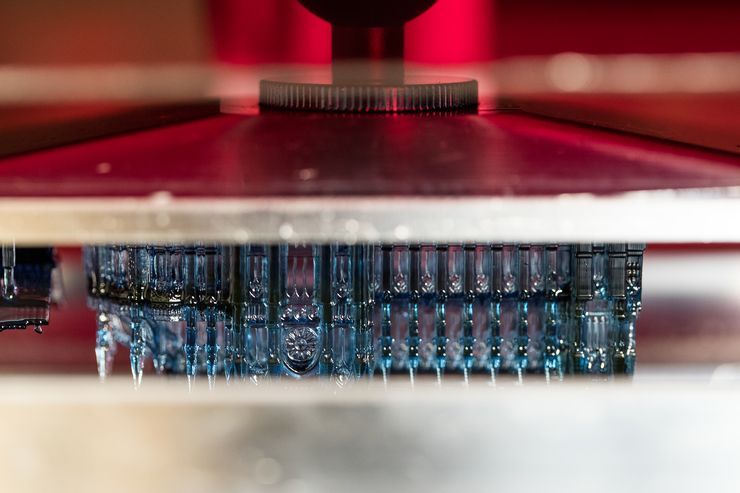
Medicine Cultures Complacency
After a busy week of nightshifts in A&E, I sat down to reflect this week on the NHS Clinical Entrepreneur Programme and my pursuit of ‘innovation’. But what exactly does that mean, and why do we do it?
Hey All,
I hope you've all been well! I write this as I've been recovering after finishing a set of nightshifts this week. My sleep patterns are always slightly whack after adjusting my rhythm, not unlike a hangover.
As a junior doctor, one of the most exciting things about working in A&E is that you never know what will walk through the door. Over the course of the week, I saw a variety of conditions ranging from heart attacks, to traumatic injuries and psychotic depression. There were lots of drunk people. Many people with non-specific symptoms who probably would've been safer at home.
One thing I am grateful for is far fewer Covid-19 cases. The UK's R rate (number of people infected from a single person) has finally dropped below 1, meaning incidence should continue decreasing. As the world looks to take steps towards reopening communities, it's important to stay vigilent and look after each other.
Innovation in Medicine
Recently, I've been thinking a lot about the role of innovation in medicine. Anyone who's spoken to me recently will know that I work a lot with 3D printing. I recently joined the NHS Clinical Entrepreneur Programme, an incredible NHS initiative that allows mentees to turn their ideas into reality through guidance and teaching of management. I'm really excited to see where I can take my vision of 3D printing, and my passion in medical technologies.
I can't help but feel that there is a certain stigma around the word 'entrepreneurship' in the medical field. People associate it with connotations of money-chasing. Leaving medicine for the fame; the alleged 'Silicon Valley life'. For being a sellout. If you're pursuing something outside of medicine, it means you're not dedicating 100% to your career. And that makes you a 'bad doctor'.
I think being an entrepreneur is so much more than that. It's a mindset that helps you think beyond the world you live in. It's about contrarian thinking: being willing to question and conceive ideas in great uncertainty. Finding a problem in today's society, and thinking it deserves better. Having the guts to stick with an idea and turn it into a tangible change in the world. In many cases, profitability does provide incentive, but it also provides sustainability to the business idea.
Derek Siver's book Anything You Want really changed my perspective on this. The novelty of taking an idea and building it into something that provides intrinsic value for others. It also has one of my favourite quotes that I keep wherever I go:
Never forget why you're doing what you're doing. Are you helping people? Are they happy? Are you happy? Are you profitable? Isn't that enough?
In medicine, innovation is undoubtedly necessary. Without the previous generation thinking outside the box, we wouldn't have things like gene targeting therapy, cancer treatments, or new drugs. As healthcare faces increasing burdens of population and cost, it needs new ideas to evolve. New technologies can directly improve human lives and mortality, and that is all the incentive that we should need.
I wonder why this mindset isn't more relevant in medical school. Not even the business-oriented side, but the ambitions of promoting and pursuing your ideas. Why, instead of pursuing innovation and creativity in medicine, are we encouraged to simply 'be good enough'? When the benchmark is simply passing exams, it's easy to fall into a sense of complacency. This extends beyond medical school as well. We have been spoiled by the fact that progression is inevitable in our careers, provided we tick the right boxes. The mindset that if we do the time, progression will take care of itself.
Is it because medicine as a career is tough enough in itself? Have we been conditioned to follow paths rather than create them? Medical students are some of the brightest students in the world, and it feels like a real waste.
Many more words to say about this, and I think I'll write a separate article down the line. Watch this space.
Favourites
I recently read The Lean Startup by Eric Ries, essential reading when it comes to the entrepreneurial and startup space. It details the Lean Methodology which allows companies to find what the customer really wants, as quickly as possible based on tangible metrics. As someone new to the business sphere, this was a really enlightening read. You can find the book on Amazon below, and I'll also share my book summary on my blog in the near future.

What I'm listening to
I'm a huge fan of Lofi when it comes to studying and chilling. So much so that 4/5 of my Spotify artists were from my Lofi hiphop playlist. I've been enjoying some nostalgia in my latest listen, Poke and chill which is a redone version of many Pokemon soundtracks into laid back lofi versions.

As always, let me know if you have any comments or thoughts about anything. That's all for this week though. Stay safe and stay happy!
Matt
MRCP exam revision materials straight to your inbox.
Sign up to the mailing list to be the first to receive tips and tricks to pass your exams.







